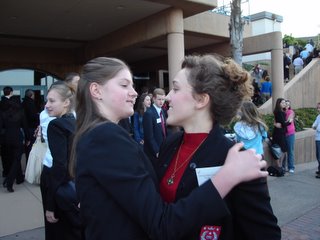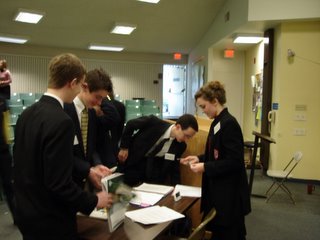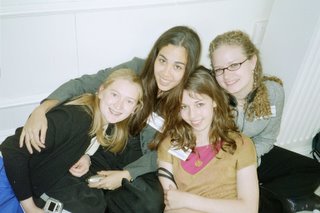
Is there anything more rare than a truly gentle man? Or more wonderful? He's the guy who could kick the door down - and has been sufficiently provoked to justify it - but he won't. Instead, he shoulders the provocateur aside with sublime indifference and holds that door open for his sister.
He refuses the temptation to pick petty quarrels. He scorns the invitation to scorn. His mind and heart leave mere self indulgence in the dust of his initiatives to serve and to build. He looks beyond each irritation or setback for the opportunity to rescue another - especially when no one is looking.
I've been considering how to recover this ideal concretely for my son. My pastor says that boys need to be filled with visions of what we want them to achieve. Lacking loads of examples in contemporary society, we turn to former ages, when they drew their portraits from life.
If your boys haven't read Beau Geste by P. Christopher Wren, run, don't walk to the library to get it! The four main characters, two orphaned upper-class English youths and two retired Texas Rangers, are just such gentlemen. They sacrifice their lives to protect the honor, peace and safety of an elderly aunt, a foolish girl, fallen comrades and the manor's poor. Sounds like a sentimental morality play, but you'll laugh till your face hurts. (Dickens would neither understand nor approve.)
Second-Hand Lions is a recent movie in the same vein. The two old brothers remind me poignantly of my Grandfather and great uncles. The brothers find new purpose at the worn-out end of life protecting a scrawny, un-promising boy from criminal neglect and teaching him how to be a real man.
So much for visions. I'm taking a page from my dear friend's book to give our sons a feel for taking care of others from a masculine perspective. She helps her son practice in public by giving him the father's role in the father's absence. For instance, she sends her son to the grocery register or restaurant counter with the money and everyone's order rather than doing it herself. She asks him to lead in prayer when Dad is not around, and encourages him to provide masculine comforts to the family, like lighting a fire or grilling the chicken or seeing what's broken and fixing it.
It has often been noted that Jesus was a gentleman, but it is not often enough understood to have been a radical posture. He treated women like real people. His expressed concern during His final extremity was for the welfare of His mother. He spent His life refusing the provocations of men, institutions and demonic powers, determined not to be diverted from doing all the good His Father sent Him to do. Sure, He could have kicked the door down, leveling the corrupt religious and political officials. But instead, He shouldered His provocateurs aside with sublime indifference and held the door to eternal life open for His Bride.
Share with us your best ideas for raising gentle men.















